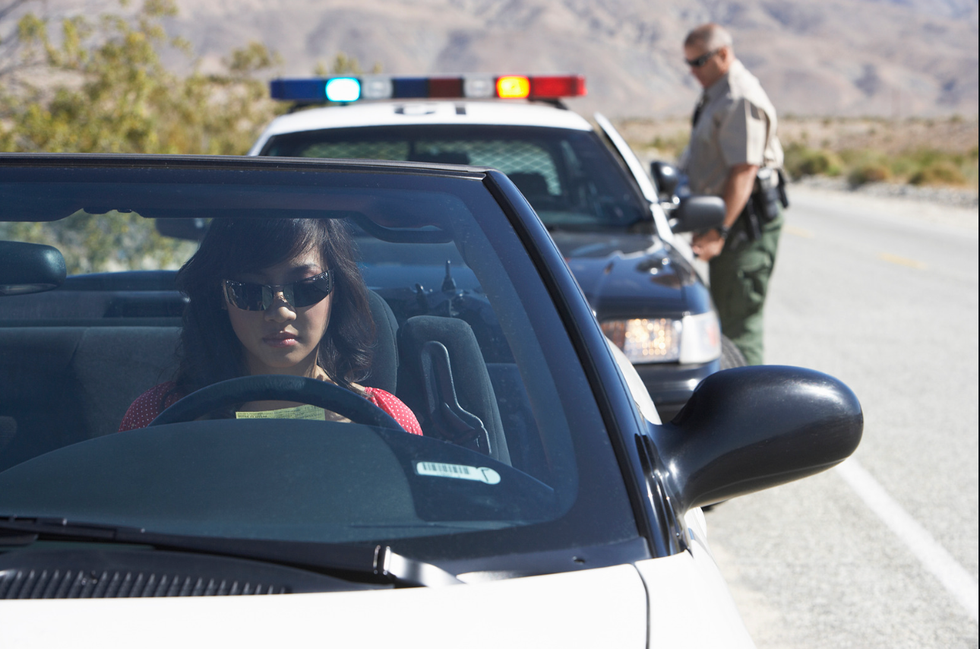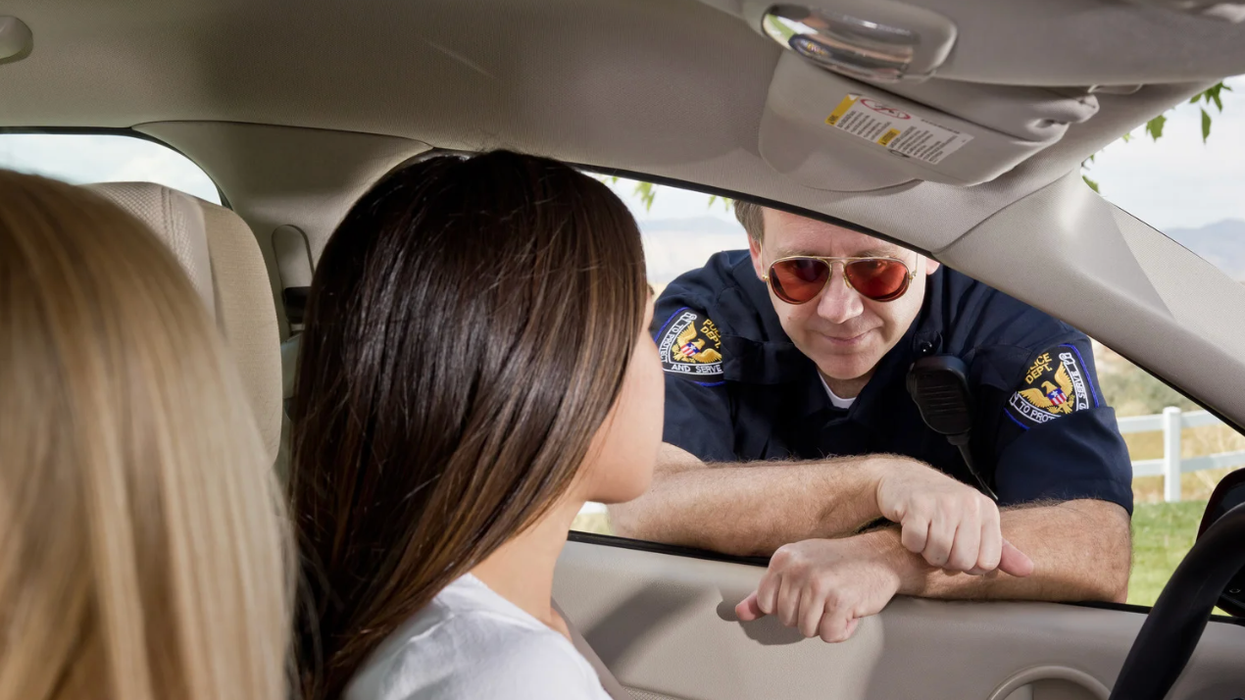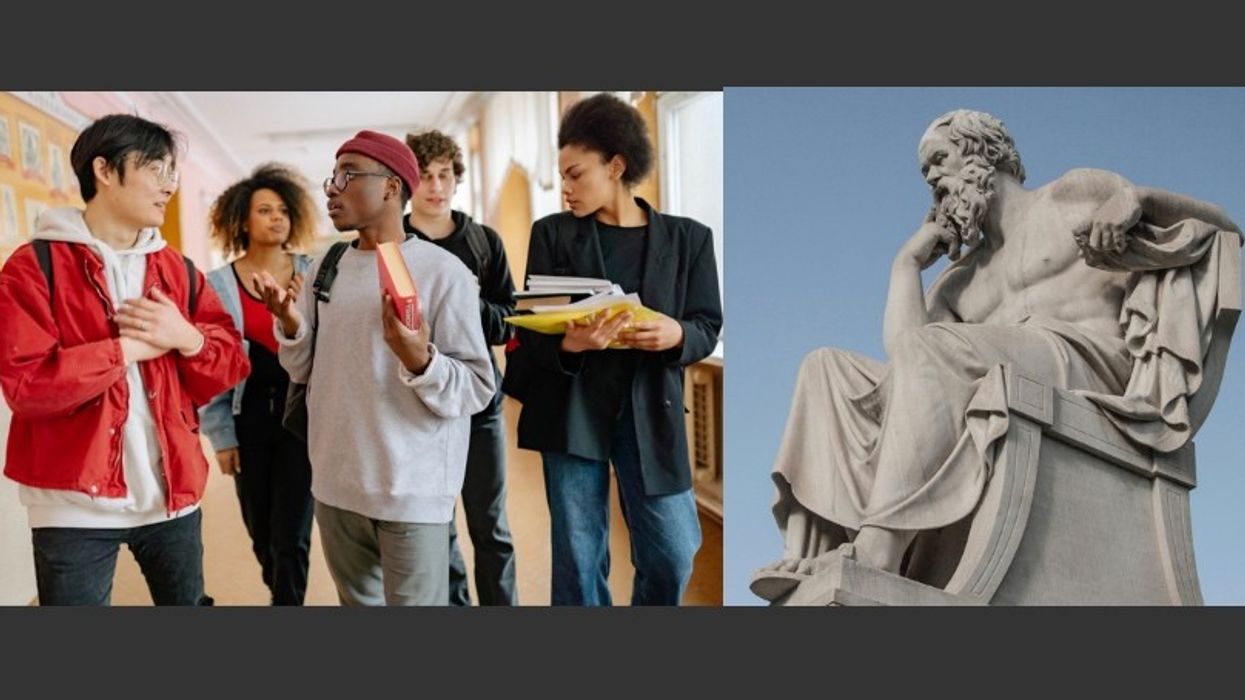Getting pulled over by a police officer is the opposite of a fun time, regardless of reason. It’s stressful, annoying, and could be scary even if you didn’t do anything wrong. If this has happened to you, you may have noticed an officer touch your tail light before walking over to the driver’s side window to speak with you. That is, if it was an older cop.
In a previous GOOD article, we explained why some police officers tap your tail light or somewhere on the back of your car before chatting with you after they pull you over. In short, the main intent is to leave a fingerprint behind to provide evidence that your interaction with the officer took place. It’s a “just in case” measure, with the possible intention of making you jump in your seat a little bit if you’re hiding anything from them. However, newer police officers don’t do this tactic any more. In fact, many see it as unnecessary and even harmful.
@lawbymike Why Cops Touch The Back Of Your Car! #police #cops #car #fingerprints Why do cops touch the back of your car. Why do cops touch the tailight. Why do cops touch vehicles. Why do cops touch cars. Why do cops touch the back of the vehicle. Why do cops touch your taillight. Why do cops touch the back of a car. Why cops touch car. What does it means if cops touch your car. Why do cops always touch the back of your car. Why do cops touch vehicles. Why do police touch the back of the car. Why do police touch yor car. Why do police touch the back of your car. Why do police touch the taillight. Why do police touch the rear lights. Why do police touch your car when the pulled over. Why do police touch your car when they pull you over.
It has since become widespread knowledge why police officers tap or touch a person’s tail light to the point that people are being warned not to allow police to touch their vehicles. With this public knowledge, the fear is that the situation will escalate before the initial conversation between the officer and person being pulled over has even begun. Many newer officers agree.
With the majority of police vehicles being fitted with dash cams and officers wearing body cameras, most police don’t have a reason to touch a tail light to leave a fingerprint. Since there will be recordings of the interaction, it’s unnecessary to provide evidence that the officer was on the scene.
An additional argument says that attempting to find the officer's fingerprint on the vehicle would be difficult and impractical anyway. It’s difficult to lift fingerprints from objects to begin with, much less finding an officer’s specific print on a car that has likely been touched all over by multiple people. It's hard to say the time and energy used dusting for prints and getting them analyzed in a crime lab is worth the effort when the majority of traffic stops are to administer speeding tickets.

On top of that, many officers found that tapping a tail light either brings unnecessary intimidation between the officer and the person pulled over, or alerts the suspect of the officer’s position to better prepare or hide potential evidence. Some stations argue that it distracts the officer since a tap indicates the police are out of their vehicle and vulnerable, providing an opportunity for a potential criminal to just flee the scene and gain a significant lead while the officer isn’t in a position to pursue them.
Regardless of the reasoning, touching tail lights or any part of the vehicle makes the interaction between officer and driver harder than it needs to be, and many police officers are now discouraged from tapping tail lights. There are even some current and former officers that have also never heard of this practice.
- YouTube youtu.be
“I have never been taught to touch the tail light on a traffic stop,” said former officer and YouTuber Mike the Cop. “I was not trained in the academy to touch the tail light on a traffic stop, I don’t know a single officer that was ever taught to touch the tail light of a vehicle during a traffic stop.”
That said, this all can depend on the resources available to your local police department along with if your police were trained in the “old school.” In any case, it’s good to know that more police are being encouraged and trained to make an already stressful situation less stressful than it needs to be.























 There are plenty of low or no-cost date ideas.Canva
There are plenty of low or no-cost date ideas.Canva Couples can energize their relationship by finding bonding moments that reignite their wonder.Canva
Couples can energize their relationship by finding bonding moments that reignite their wonder.Canva
